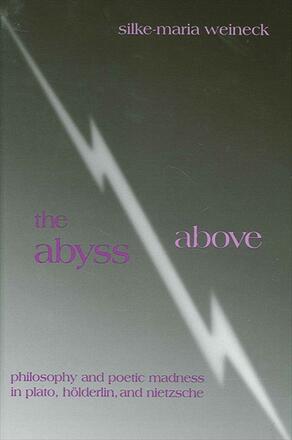
The Abyss Above
Philosophy and Poetic Madness in Plato, Hölderlin, and Nietzsche
Alternative formats available from:
Uses the figure of the mad poet to explore the connections between madness and creativity.
Description
In The Abyss Above, Silke-Maria Weineck offers the first sustained discussion of the relationship between poetic madness and philosophy. Focusing on the mad poet as a key figure in what Plato called "the ancient quarrel between philosophy and poetry," Weineck explores key texts from antiquity to modernity in order to understand why we have come to associate art with irrationality. She shows that the philosophy of madness concedes to the mad a privilege that continues to haunt the Western dream of reason, and that the theory of creative madness always strains the discourse on authenticity, pitching the controlled, repeatable, but restrained labor of philosophy against the spontaneous production of poetic texts said to be, by definition, unique.
Silke-Maria Weineck is Assistant Professor of German Studies at the University of Michigan.
Reviews
"…an original contribution to the study of philosophy and literature." — CHOICE
"This book is a major contribution to the exploration of madness. Weineck's original readings demonstrate her admirable grasp of German intellectual history and literature. Her argumentation is sophisticated." — Karin Bauer, author of Adorno's Nietzschean Narratives: Critiques of Ideology, Readings of Wagner
"No one intending to think or write on Plato, Hölderlin, or Nietzsche can afford to do so without a knowledge of Weineck's chapters." — Stanley Corngold, author of Complex Pleasure: Forms of Feeling in German Literature
"Absolutely fascinating on every page. One learns from Weineck's way of putting things as well as from the points themselves. " — John McCumber, author of Poetic Interaction: Language, Freedom, Reason